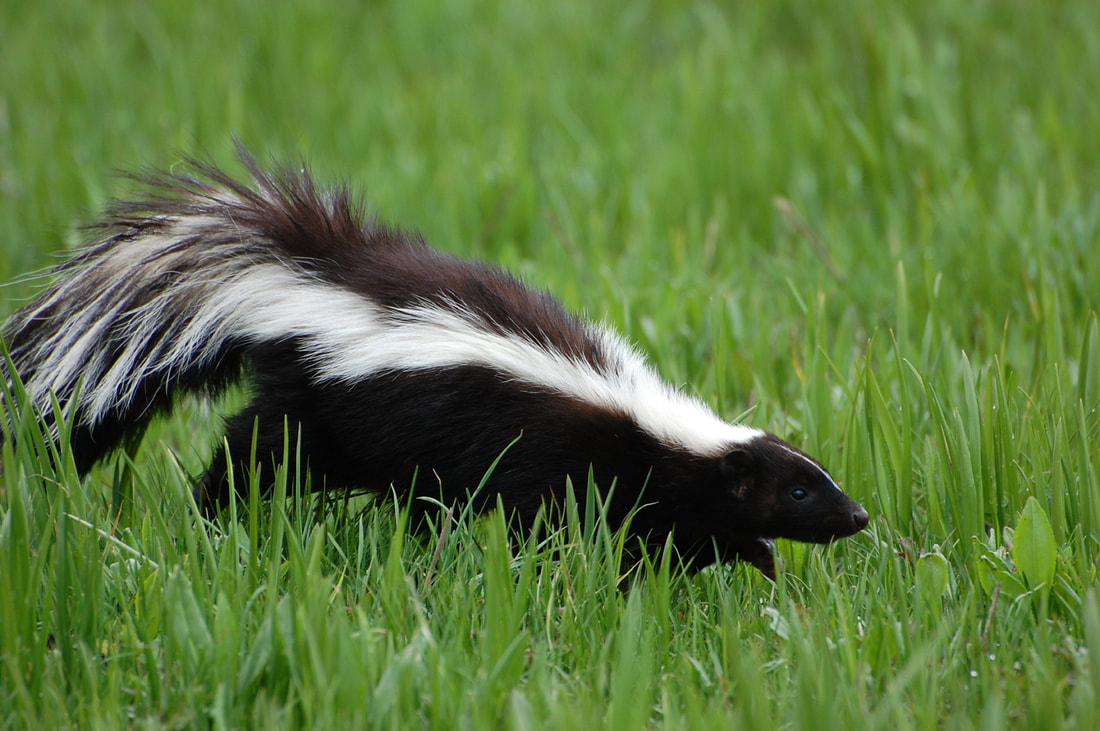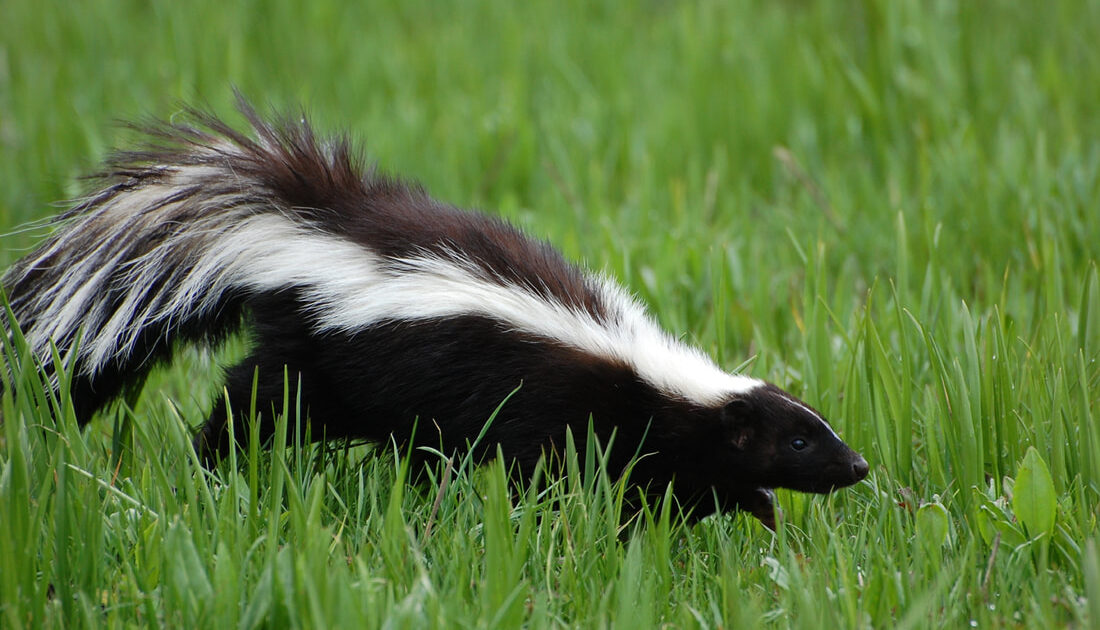Many people don’t know a lot about skunks other than their ability to spray a horrible-smelling rotten-egg stench, and it’s best not to become a skunk’s target. Skunks are rather shy and gentle critters. They only use their spray when they feel it’s absolutely necessary.
They are more active at night than during the day, and they sometimes make dens under decks and porches. If you smell the signs of a skunk on your property, contact Skedaddle for humane skunk removal. Skunks are omnivores, which means they have a varied diet, but do they eat bees?
What a Skunk Eats
Skunks eat both plants and animals. They can eat a wide variety of food and aren’t too picky. They adapt their diet to meet the conditions in their environment. They may eat fruit and plants, but their preferred dinner choice is insects and small animals. Though you may not want to get caught in the crossfires of their tail end, skunks are great for the ecosystem and do humans a good service.
These little critters feast on snakes, scorpions, crickets, beetles, mice, moles and spiders. They handily rid our gardens and yards of the creatures that can destroy our plants and invade our homes. In the warmer months, when insects thrive, skunks eat more of them than any other food. Among the insects skunks eat are — yes — bees. When a skunk eats bees, the bees sting the inside of their mouths, but the skunks don’t seem to be affected by it the way many people are!
How To Keep Skunks out of a Hive
If you are a beekeeper, you are keenly aware of the danger skunks pose to your hives. Skunks can do a great deal of damage to a hive, killing numerous bees in one meal, and they’ll come back for more the next time they get hungry for the taste of bees.
Generally, skunks draw bees out of the hive by scratching on the side of it, causing the curious bees to go out and investigate. As they exit the hive, they become easy prey. Skunks do a lot of good things for the ecosystem, but you don’t want them eating your bees. You can take measures to deter bees from invading your hives.
Keep Your Property Clean
Keeping your property clean serves two purposes. First, skunks take advantage of open garbage bins for an easy meal, and they love a good woodpile and other debris for denning. Maintaining a clean yard makes it a less appealing environment for skunks. Additionally, other rodents and bugs love your waste as well. If you have a yard that attracts these critters, you provide skunks with another easy food source.
Seal the Entry Points on Your Property
Another way to deter skunks is to close off the places they could build a den. Make sure your porches and decks have fencing around them to keep the skunks away. Check for entry points in your garage and shed, too. If there is a way in, a skunk will take advantage of the opportunity to make a safe den.
Build Your Hives Higher Up
Skunks are not good at climbing, which is why you don’t find them in your attic. If you construct your hives up off the ground, skunks are far less likely to disturb them. If you raise the hive 3 feet or more above the ground, skunks can’t easily access the entrance. Additionally, when they have to raise up on their hind legs, they are vulnerable to stings on their bellies, something they don’t seem to care for.
Where To Get Help With Humane Skunk Removal
Skedaddle provides humane services in wildlife control in Milwaukee. We are experts in skunk behavior and can safely remove them from your property, and seal off any entry points to discourage their return. If you notice signs of skunks, get in touch today to schedule services.




